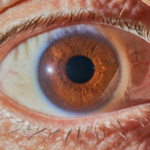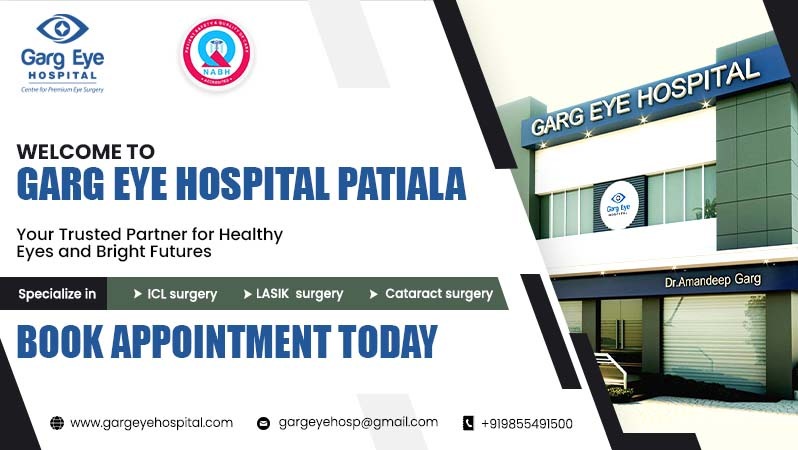How Does Laser Eye Surgery Work – Laser eye surgery, also referred to as laser vision correction, is a highly effective method for enhancing vision and addressing various common vision issues. It offers a solution for conditions such as near-sightedness, far-sightedness, presbyopia, and astigmatism. This procedure, when performed by skilled professionals using advanced tools, has shown excellent outcomes.
The popularity of laser eye surgery is on the rise, with approximately 100,000 individuals in India opting for it annually. Many choose this procedure to eliminate the need for glasses or contact lenses, while others seek it to enhance their career prospects, such as individuals aspiring to join the police force, military, or firefighting services. Garg Eye Hospital Provides You With The Best Laser Eye Surgery and will guide you to know how Laser Eye Surgery Work.
When is laser eye surgery necessary?
Laser therapy uses focused light rays to precisely cut, shape, or remove tissues in your body. In the case of eye treatments, Laser therapy is a better option than regular surgery for the sensitive parts of your eyes. Laser eye surgery can lower your chances of having problems and speed up your healing after the surgery.
Many people think laser eye surgery just fixes vision, but doctors also use it to treat other problems.
- Cancer
- Cataracts
- Diabetes eye disease
- Glaucoma
When it comes to fixing vision problems, laser surgery can help with things like refractive errors.
- Myopia
- Hyperopia
- Astigmatism
How Does Laser Eye Surgery Work?
Laser eye surgery fixes the small imperfections, ensuring light lands exactly where it should. This precision helps you see clearly, freeing you from the need for glasses or contact lenses. Before your surgery, the doctor will talk to you about what you need and any specific risks, measure your eyes, and tell you what to do before the surgery.
Wear comfy clothes on the day of surgery and have someone ready to take you home after the procedure. The laser eye surgery usually takes about 30 minutes for each eye, but it can be different for each person and place.
This is what you might experience during laser eye surgery:
- A doctor or nurse will give you medicine in your eyes to make them numb.
- They will use a small suction cup to hold your eye open and keep it from moving while they work. It might feel like someone pressing on your eyelid, and you might not be able to see well or at all.
- Your doctor will use a special light to make a thin piece of tissue in your eye and fold it back.
- Your doctor will ask you to look at a light and use a laser to change the shape of your eye. This laser is set to fix your vision problem using measurements taken before the procedure. During this part of the surgery, you might hear a clicking noise.
- Once the reshaping is done, the surgeon will put the corneal flap back in place and finish the procedure.
Types Of Laser Eye Surgery
Doctors and nurses can use lasers to get rid of, take out, or change tissue to treat different health problems, as we talked about before. These treatments could be thought of as either surgeries done with a laser or surgeries guided by a laser.
The most common type of laser therapy is a surgery that fixes vision problems called refractive laser surgery. There are three main types of laser surgery in this category.
| LASIK (Laser-Assisted In Situ Keratomileusis) | PRK (PhotoRefractive Keratectomy) | SMILE (Small Incision Lenticule Extraction) | |
| Type of procedure | Popular laser eye surgery | Older laser eye surgery | Newer laser eye surgery |
| Suitable for | Nearsightedness, farsightedness, astigmatism | Mild nearsightedness, farsightedness | Nearsightedness, astigmatism |
| Corneal flap creation | Yes, a thin flap is created with a laser | No flap is created | Yes, a small incision is made |
| Laser application | Exposes underlying corneal tissue for reshaping | Applied directly to the corneal surface | Applied to the lenticular (inner corneal tissue) |
| Flap repositioning | Replaced after laser treatment | Not applicable | Not applicable |
| Healing time | Faster (1-2 days) | Slower (5-7 days) | Moderate (3-4 days) |
| Recovery discomfort | Less discomfort | More discomfort | Moderate discomfort |
| Risks and complications | Flap-related complications possible | Longer recovery time | Potential for slower visual improvement |
How long does laser eye surgery last?
Laser eye surgery is supposed to last forever. The surgery fixes your eye problem now, but your eyes will still change in the future, even if you have the surgery.
Even though the surgery can fix your vision problem, you might experience different vision changes later on, especially if you had laser surgery when you were young.
A study showed that almost all the people who had laser eye surgery didn’t need to wear glasses or contacts for their vision even after 5 years. However, around 1 in 10 people who have laser surgery have to come back for more treatment to get the best results.
Who should avoid laser eye surgery?
Not everyone can get laser eye surgery, just like other procedures. Laser surgery can be used to treat cancer and eye problems, but it’s not usually a good option for vision correction for people who:
- Have serious uneven astigmatism.
- Participate in sports where you have physical contact with other players
- Vision prescription changes often.
- Have autoimmune disorders or other conditions that hinder healing.
- Have diabetes & decreased corneal sensation.
Complications After Laser Eye Surgery
Any time you have surgery, there is a chance that something might go wrong, and that’s also true for laser eye surgery. Potential problems or unwanted reactions from laser eye surgery may include:
- Dryness
- A rough or grainy sensation
- Redness in ey
- Visual problems
- Pain in the eye
- Sensitivity to light
- Diseases caused by germs or bacteria
Losing a lot of vision or going blind can happen after laser surgery, but it doesn’t happen very often.
Prior to and after your surgery
Before your eye surgery, you will meet with your eye doctor to talk about the procedure. During this meeting, the doctor will:
- Give a complete eye check-up.
- Find out if you are a good fit and talk about how you can be treated.
- Explain the dangers, potential negative effects, and advantages of the treatment to you.
- Discuss about what will happen before, during, and after your surgery.
- Take your time to ask any questions.
- If you use contact lenses, be sure to stop wearing them one week before you see the doctor for soft lenses and 4 weeks before for hard lenses.
Day before your Laser Surgery:
- Please don’t use any makeup, lotions, creams, or perfumes before surgery because they can cause problems during the procedure.
- Book your ride from the doctor’s office. You might get a medicine that will make you too sleepy to drive.
Conclusion
Right after the procedure, you might feel a little uncomfortable or have some mild pain. You might feel like rubbing your eyes, but it’s crucial not to because it could move the corneal flap. These symptoms will get a lot better a few hours after surgery. Even though you’ll heal fast, you might want to take a day or two off from work. Your doctor will give you eye drops to stop infection and reduce swelling. You may also be told to use fake tears to keep your eyes moist. If you feel a lot of pain, see redness, or can’t see well, call your doctor right away.
In conclusion, if you are looking for the right Laser Eye Surgery doctor or treatment, Garg Eye Hospital can provide you with effective treatment & skilled doctors. To learn more about our services, please contact us at +91-9855491500, 0175-2309500, 0175-5019500, or visit our hospital in Patiala.



